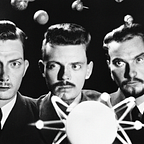Towards a participatory ecology
Just wanted to share a thought-provoking piece on “participatory ecology,” by Russell Edwards, a vegan-turned-hunter:
I think this is an interesting argument to make, which goes way beyond the standard “everyone should grow their own food” argument (which I’m not sure actually makes sense, anyway). From the piece above:
… if it is bad to prey or be preyed upon, to consume or to be consumed, then the most important modes of ecosystem participation are illegitimate and the only ethical choice is alienation. […]
To genuinely see ourselves as ecosystem participants requires, obviously, that we actually participate in ecosystems. Directly. In hands-on ways that reignite the genetic memory we all possess, of humankind’s natural ecosystem roles. Those roles evolved over millions of years to equip us not as economic consumers, or even as farmers, but as hunter-gatherers. To participate authentically in ecosystems, at least occasionally (and always sustainably) we must enter intact wild ecosystems and spend some time obtaining our basic needs from them. We must find shelter there, gather wood, and warm ourselves by a fire there. We must sleep there, eat, and excrete there. And crucially, what we eat must come from there. We must forage and we must hunt.
I think what I like so much about Edward’s piece is that it’s one of the few I’ve read which says that being an “environmentalist” must go beyond occasionally taking a walk in a park somewhere.
The thing I want out of this phrase or concept “participatory ecology” has to do with recognizing our place as humans within ecosystems and the living world. We are not just some mysterious detached “observer” but are embedded within it; in fact, we are it.
